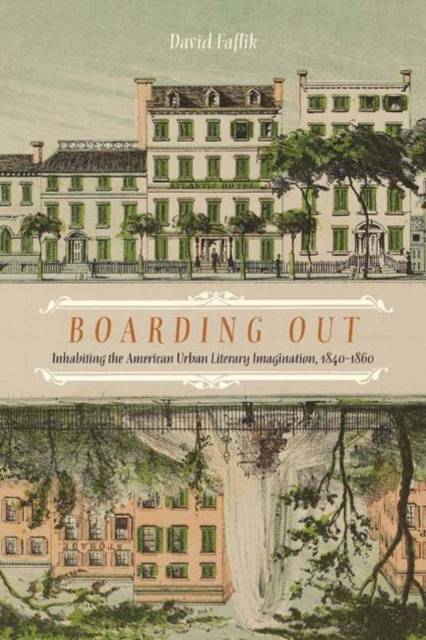
- Afhalen na 1 uur in een winkel met voorraad
- Gratis thuislevering in België vanaf € 30
- Ruim aanbod met 7 miljoen producten
- Afhalen na 1 uur in een winkel met voorraad
- Gratis thuislevering in België vanaf € 30
- Ruim aanbod met 7 miljoen producten
Zoeken
Boarding Out
Inhabiting the American Urban Literary Imagination, 1840-1860
David Faflik
Hardcover | Engels
€ 117,45
+ 234 punten
Omschrijving
Driven by intensive industrialization and urbanization, the nineteenth century saw radical transformations in every facet of life in the United States. Immigrants and rural Americans poured into the nation's cities, often ahead of or without their families. As city dwellers adapted to the new metropolis, boarding out became, for a few short decades, the most popular form of urban domesticity in the United States.While boarding's historical importance is indisputable, its role in the period's literary production has been overlooked. In Boarding Out, David Faflik argues that the urban American boardinghouse exerted a decisive shaping power on the period's writers and writings. Addressing the works of canonical authors such as Henry David Thoreau, Nathaniel Hawthorne, and Oliver Wendell Holmes, as well as neglected popular writers of the era such as Fanny Fern and George Lippard, Faflik demonstrates that boarding was at once psychically, artistically, and materially central in the making of our shared American culture.
Specificaties
Betrokkenen
- Auteur(s):
- Uitgeverij:
Inhoud
- Aantal bladzijden:
- 388
- Taal:
- Engels
Eigenschappen
- Productcode (EAN):
- 9780810128415
- Verschijningsdatum:
- 30/09/2012
- Uitvoering:
- Hardcover
- Formaat:
- Genaaid
- Afmetingen:
- 152 mm x 234 mm
- Gewicht:
- 589 g

Alleen bij Standaard Boekhandel
+ 234 punten op je klantenkaart van Standaard Boekhandel
Beoordelingen
We publiceren alleen reviews die voldoen aan de voorwaarden voor reviews. Bekijk onze voorwaarden voor reviews.











